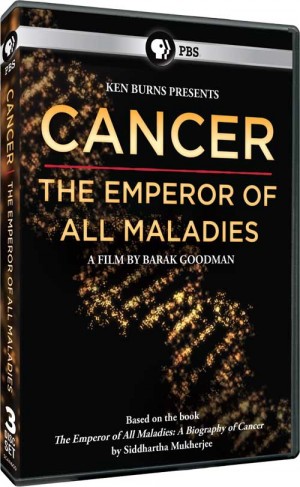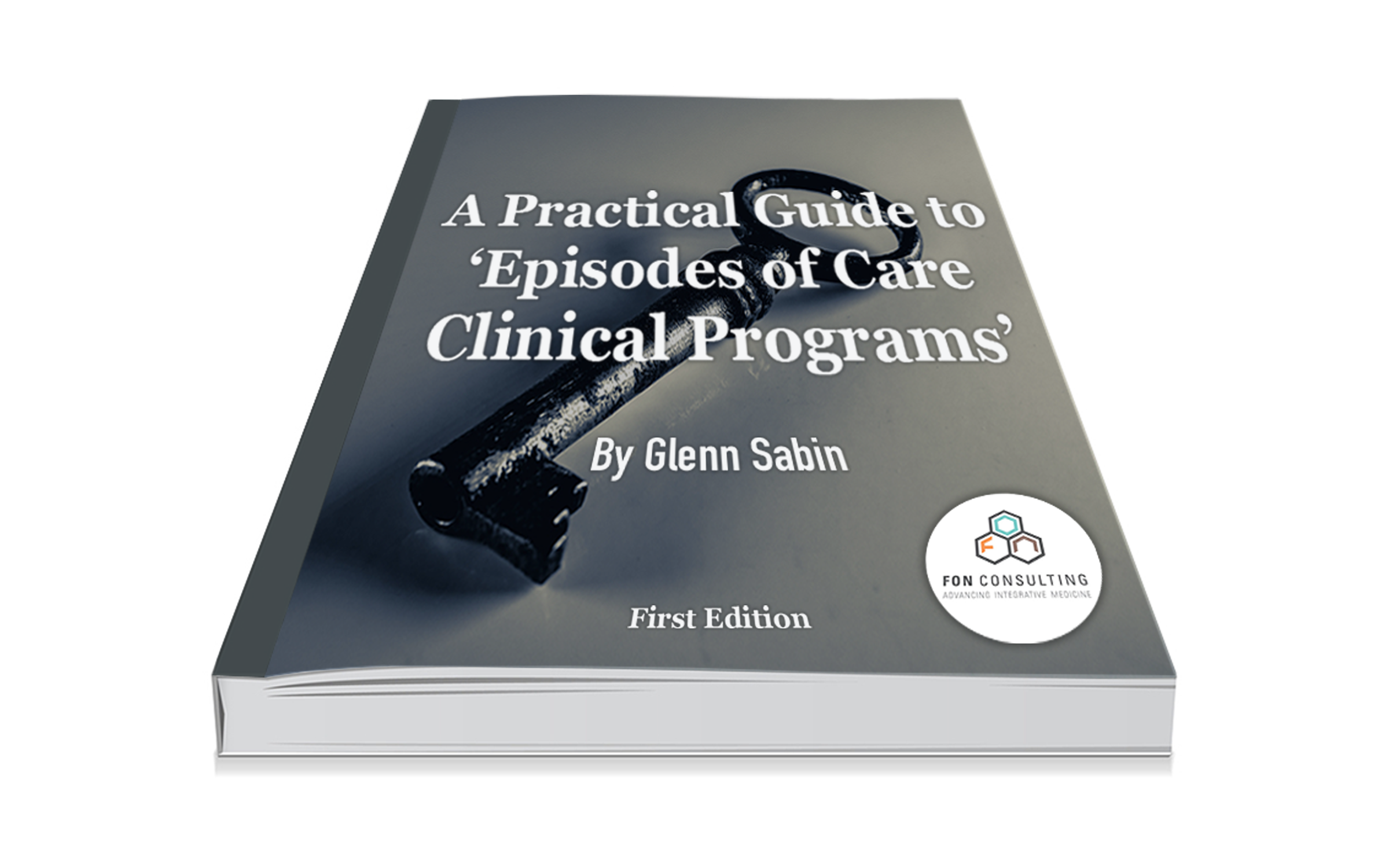An Integrative Oncology Patient’s Thoughts on ‘Cancer: Emperor of All Maladies’
By Glenn Sabin

As a 24-year cancer survivor I watched Cancer: Emperor of all Maladies with mixed emotions. From this patient’s perspective, the film is all about the ‘tumor’ and treats the host, aka the patient, as almost an irrelevant, disconnected entity.
Ken Burns is the preeminent documentarian of our time. His own mother succumbed to metastatic breast cancer when he was only 11. His latest work, Cancer, produced by Barak Goodman and based on Dr. Siddhartha Mukherjee’s book, has been watched by over 130 million people and should be required viewing by anyone affected by malignant disease.
Closely following Mukherjee’s Pulitzer winning tome, Cancer tightly focuses on our ever-growing understanding of cancer cells, oncogenes, genetic mutations and tumor suppressor genes blazing new treatment frontiers. Its overarching theme, the perennial quest for a cure, looks at a series of battles comprising a ‘war to be won’ ever since President Nixon’s 1971 proclamation.
Sadly, Cancer all but ignores the all-important host—that is, the actual patient. Heavily focused on the pathology, the disease burden itself, there’s strikingly no mention of the many behavioral modification and self-efficacy tools that could promote a better outcome.
Clearly, throughout the six-hour saga, the film skillfully weaves deep, touching modern human narrative; however, from a cancer patient’s perspective it’s anything but empowering.
Adequately depicting the deleterious effect of conventional care and the all-consuming physical, psychological and emotional tumult endured by cancer survivors, it sadly fails to enlighten and harness the formidable human spirit.
There’s no mention of the critical disease management roles played by lifestyle choice, environment, education and self-efficacy with respect to cancer prevention.
There’s an irrefutable growing body of literature today supporting healthy eating habits, stress reduction and physical activity to prevent many cancers. This information is highlighted on both the American Cancer Society’s and NIH’s National Cancer Institute’s websites.
Cancer patients armed with the right tools, regardless of the situation specifics, can positively impact their quality of life and long-term survival odds.
National Review of American Lifestyle
A team of investigators working with the American Cancer Society recently compiled nationwide survey data on rates of obesity, lack of exercise, poor diet and smoking—core factors profoundly elevating one’s lifetime risk for developing or succumbing to cancer.
“Much of the suffering and death from cancer could be prevented by more systematic efforts to reduce tobacco use, improve diet, increase physical activity, reduce obesity and expand the use of established screening tests,” the authors reported.
In this so-called war against cancer, the best way to weaken the enemy is by protecting the host. (click to tweet)
Pathways and Pummeling Vs. Prevention
With so much attention in Cancer centered on malignant cells, pathways and best methods for pummeling or tricking disease into submission, the only discussion around preventative measures centered on sun-avoidance and an, albeit very effective, anti-smoking ad campaign. While some vaccines and screenings were also highlighted, the latter focused on early disease detection opposed to true prevention via comprehensive lifestyle and behavioral changes.
A Stew of ‘Unknown’ Chemicals
Yes, harmful environmental carcinogens such as asbestos and benzene were briefly cited as cancer causing agents, but, curiously, there was no mention of the 80,000 other chemicals regularly used but not tested for safety in the U.S. This includes many common consumer products we use daily.
Compromised Food Chain
Unfortunately, Cancer doesn’t address our troubled food chain or archaic agriculture policies supporting disease creation. We continue to subsidize corn producers driving the high fructose corn syrup machine. Corn and soy subsidies provide cheap, unnatural animal feed resulting in a steady supply of ‘high inflammatory’ protein.
Our compromised food chain also includes a broken distribution system; consequently, food deserts are ubiquitously found in lower income areas nationwide. While full service grocery stores offering fresh, healthy produce and unprocessed, natural foods are nowhere to be found, fast food joints offering cheap, unhealthy processed food abound. This deadly combination profoundly contributes to chronic disease, including obesity, diabetes and several forms of cancer.
Not as sexy as Dr. Carl June’s immunotherapy work with genetically modified T cells for obliterating chronic lymphocytic leukemia tumors, nor many other novel approaches in cancer warfare, our troubled but repairable food chain just may hold the key to unlocking ‘prevention as the cure’.
Enjoying this article? Subscribe and get our latest, delivered straight to your inbox.
The Inexorable Path to Personalized Cancer Care
The promise of personalized cancer care is breathtaking. It’s an incredible time for biomedical research, with all its technological advancements and emerging research models and often led by courageous, well-funded investigators.
Only a mere dozen years after decoding the human genome, we’re developing additional predictive assays and sequencing more genomes. Further advancing today’s cancer care, we’re identifying new genetic mutations and subsequently creating evermore highly targeted therapies. Among the most promising are monoclonal antibodies, kinase inhibitors, vaccines and hormonal therapies.
We’ve entered an era of personalized cancer care beyond which, yet in our lifetime, malignant disease will largely be treated with each unique patient (host and tumor burden) as an n of 1.
I am grateful for our incredible progress. However, the most sensible and cost-effective ‘cure’—the elusive magic bullet—remains intelligent behavioral change paying close attention to environmental factors. We must create anticancer biological milieus. As a cancer thriver watching this film, I deeply regret the huge dearth of vital information that otherwise would have been enormously helpful to the documentary’s sizable viewership.
As personalized cancer care continues its ascent, let us not lose sight of the enormous power of true prevention methods that include lifestyle and behavioral changes for significantly reducing the onset of disease, creating durable remissions and, importantly, its economic burden for millions.
Cancer may be the emperor of all maladies, but history shows even emperors can be dethroned. (click to tweet)
Signup to receive an excerpt from Glenn Sabin’s book, n of 1.

Read Glenn’s story.





















